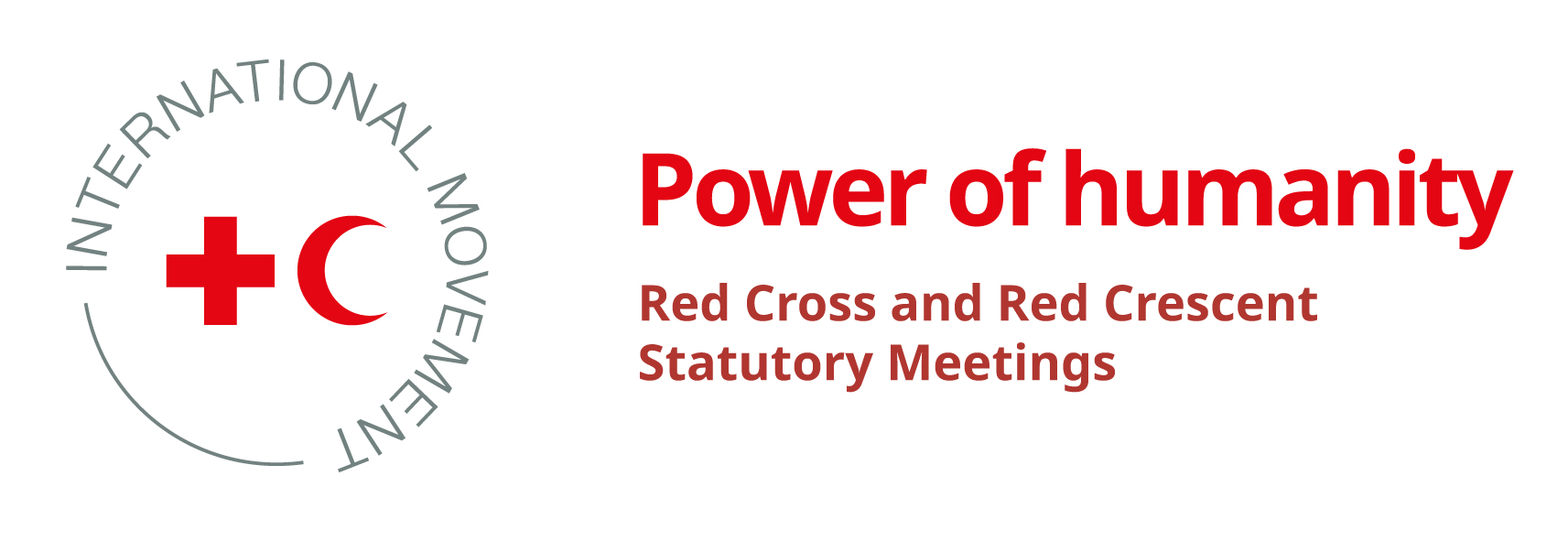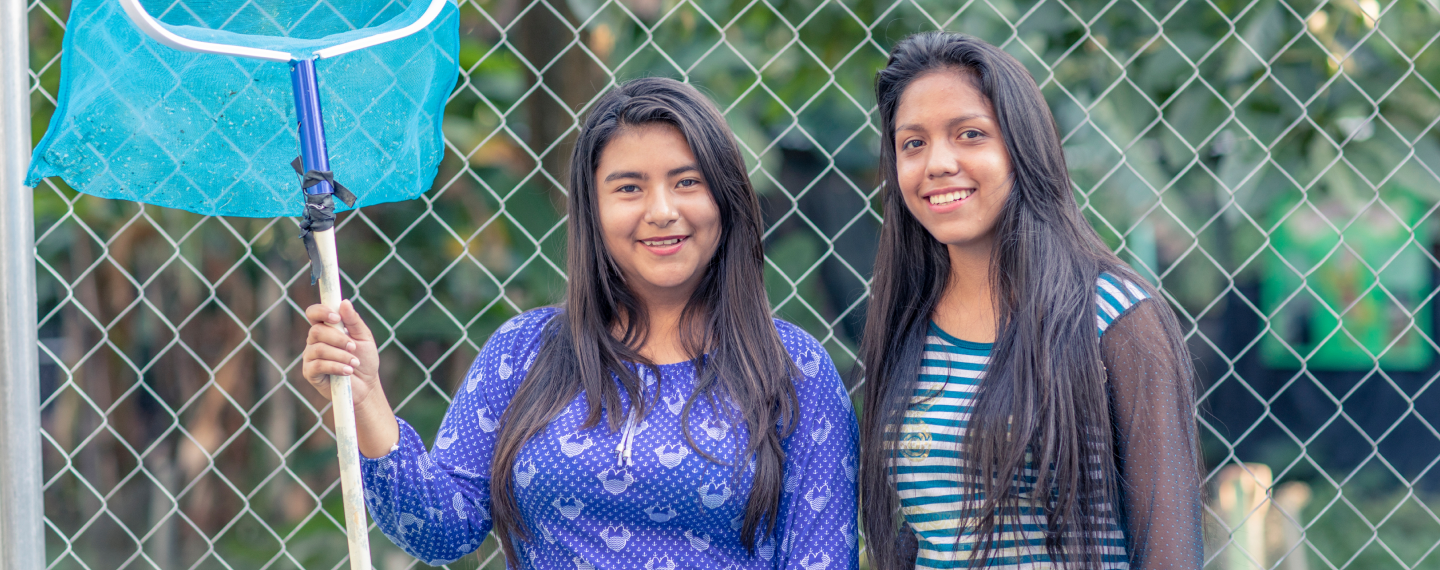Youth Engagement Segment 2019
Learning from the engagement of youth leaders in the previous Statutory meetings, we assert that bringing the youth voice in the RCRC decision-making discussions is brings value-add and vital. It is our today’s investment into the youth leadership development that in combination with inter-generational co-operation foster the transfer of experiences, stability and progress in local communities, globally.
Building on the achievement of the 2017 when 170 young delegates from 121 National Societies joint the Statutory meetings, this year our objective is to have young delegates participate from at least 130 National Societies.
The perspectives of young humanitarians add significant value to all elements of our work. During the upcoming Statutory meetings their voice will be especially valuable when discussing gender, equity, the strategic framework on education, new and emerging trends which will influence the humanitarian landscape going forward. Expanding involvement of young delegates will strengthen the position of National Societies as partners of choice with local impact and global reach.
On the occasion of the 100th anniversary, we are reminded of a young Henry Dunant who had the transformative vision to alleviate human suffering wherever it may be found. During the General Assembly, we shall witness another powerful idea materialise. In recognition of our commitment to nurturing youth leadership and fostering inter-generational collaboration, we will conduct historic Youth
Commission elections where candidates will be elected by their peers, young leaders from National Societies.
Working together before, during, and after our highest-level decision-making meetings, both the senior leaders and the youth delegates will be able to share their motivations and aspirations in strengthening our collective RCRC mandate as well as furthering the humanitarian initiatives with government and other stakeholders. By engaging and listening to youth during the Statutory meetings we will continue effectively closing the gaps between the high-level decision-making and the realities of the communities the RCRC engages.
Building on the achievement of the 2017 when 170 young delegates from 121 National Societies joint the Statutory meetings, this year our objective is to have young delegates participate from at least 130 National Societies.
The perspectives of young humanitarians add significant value to all elements of our work. During the upcoming Statutory meetings their voice will be especially valuable when discussing gender, equity, the strategic framework on education, new and emerging trends which will influence the humanitarian landscape going forward. Expanding involvement of young delegates will strengthen the position of National Societies as partners of choice with local impact and global reach.
On the occasion of the 100th anniversary, we are reminded of a young Henry Dunant who had the transformative vision to alleviate human suffering wherever it may be found. During the General Assembly, we shall witness another powerful idea materialise. In recognition of our commitment to nurturing youth leadership and fostering inter-generational collaboration, we will conduct historic Youth
Commission elections where candidates will be elected by their peers, young leaders from National Societies.
Working together before, during, and after our highest-level decision-making meetings, both the senior leaders and the youth delegates will be able to share their motivations and aspirations in strengthening our collective RCRC mandate as well as furthering the humanitarian initiatives with government and other stakeholders. By engaging and listening to youth during the Statutory meetings we will continue effectively closing the gaps between the high-level decision-making and the realities of the communities the RCRC engages.
IFRC Youth Forum 2019
To facilitate meaningful engagement of youth delegates and ensure the youth voice echoing throughout the Statutory meetings, the Youth Forum will be organised on December 3-4, 2019, preceding the General Assembly.
Youth delegates will participate in robust substantive discussions such as the IFRC Constitutional Review, S2030, Integrity and Accountability, Gender and Diversity Policy as well as Education and Youth Commission election. The Form will hence provide a space for youth to reimagine what the RCRC Movement shall look like in the future and what kind of Movement they want to co-create.
Outcomes of the Forum will not only be shared as youth-led interventions and inputs to substantive discussions during the Statutory meetings but will also greatly contribute to the IFRC centenary celebration. In addition, the Forum will become an opportunity for the youth leaders to discuss matters pertinent to advancing the Movement’s work and youth engagement regionally. Lastly, various examples of excellence in advancing youth engagement at the National Society level will be also featured and the launch of the IFRC Y.E.S. toolkit, aimed at helping the National Societies to better operationalise the IFRC Youth Engagement Strategy (2013), will be another highlight of the Forum.
Youth delegates will participate in robust substantive discussions such as the IFRC Constitutional Review, S2030, Integrity and Accountability, Gender and Diversity Policy as well as Education and Youth Commission election. The Form will hence provide a space for youth to reimagine what the RCRC Movement shall look like in the future and what kind of Movement they want to co-create.
Outcomes of the Forum will not only be shared as youth-led interventions and inputs to substantive discussions during the Statutory meetings but will also greatly contribute to the IFRC centenary celebration. In addition, the Forum will become an opportunity for the youth leaders to discuss matters pertinent to advancing the Movement’s work and youth engagement regionally. Lastly, various examples of excellence in advancing youth engagement at the National Society level will be also featured and the launch of the IFRC Y.E.S. toolkit, aimed at helping the National Societies to better operationalise the IFRC Youth Engagement Strategy (2013), will be another highlight of the Forum.
Highlights throughout the Statutory meetings
After the Youth Forum, all the youth delegates join their delegations throughout the Statutory meetings and shape the meetings’ outcomes. In addition to the youth engagement specific statutory requirements such as the 2-year Youth Commission report, these are spotlights where young people and their contribution to RCRC humanitarian action and leadership will be celebrated:
– IFRC Youth Commission 2019-2023 Elections
– Youth on the Move Award ceremony
– 100 ideas challenge
Throughout the meetings, special spaces will be created to ensure that youth voice is heard and contributes to the collective decision making. These will traditionally include at least 15 opportunities for young leaders to assume the roles of as Drafting committee members, Rapporteurs of the Plenary sessions and Spotlight sessions, etc. In addition, daily inter-generational debriefs will allow for informal exchanges between the youth delegates and senior IFRC leaders on the substance, procedures, progress, and follow-up of the Statutory meetings.
To download the IFRC youth forum document
– IFRC Youth Commission 2019-2023 Elections
– Youth on the Move Award ceremony
– 100 ideas challenge
Throughout the meetings, special spaces will be created to ensure that youth voice is heard and contributes to the collective decision making. These will traditionally include at least 15 opportunities for young leaders to assume the roles of as Drafting committee members, Rapporteurs of the Plenary sessions and Spotlight sessions, etc. In addition, daily inter-generational debriefs will allow for informal exchanges between the youth delegates and senior IFRC leaders on the substance, procedures, progress, and follow-up of the Statutory meetings.
To download the IFRC youth forum document
The youth voice in the 2017 statutory meetings
In 2017, building on previous statutory meetings, when 115 youth delegates from 96 National Societies galvanized the youth voice and enriched the decision-making discussions with fresh perspectives, we aspire for at least 120 young leaders to attend the statutory meetings as official members of the National Societies’ delegations.
The youth voice in the statutory meetings enriches our robust discussions on new and emerging trends and threats that influence the humanitarian landscape. More specifically, youth contributions help us to strengthen the position of our National Societies as the partners of choice with local impact and global reach in responding to the increasing number of protracted and complex humanitarian crises. Furthermore, the IFRC Youth Policy 2017 cannot be adopted without having young people in Turkey with us. Putting the IFRC Charter for Volunteers on the agenda of the General Assembly also commits us to ensuring that the largest constituency of our volunteer base, young people, contribute to and witness the Charter’s adoption. Lastly, as representatives of their peers from across the 190 National Societies, youth delegates are pivotal for shaping our collective vision of the Movement’s humanitarian excellence, the blueprint for development of the Strategy 2030.
Throughout the General Assembly agenda, special spaces will be created to ensure that youth voice is heard and contributes to collective decision-making. This will include opportunities for youth leaders to assume the roles of the Assembly’s officers, such as being Drafting Committee members and chairs and rapporteurs of the workshops. In addition, the daily inter-generational debriefs will allow for informal exchanges between the youth delegates and senior IFRC leaders on the substance, procedures, progress, and follow-up of the statutory meetings.
The youth voice in the statutory meetings enriches our robust discussions on new and emerging trends and threats that influence the humanitarian landscape. More specifically, youth contributions help us to strengthen the position of our National Societies as the partners of choice with local impact and global reach in responding to the increasing number of protracted and complex humanitarian crises. Furthermore, the IFRC Youth Policy 2017 cannot be adopted without having young people in Turkey with us. Putting the IFRC Charter for Volunteers on the agenda of the General Assembly also commits us to ensuring that the largest constituency of our volunteer base, young people, contribute to and witness the Charter’s adoption. Lastly, as representatives of their peers from across the 190 National Societies, youth delegates are pivotal for shaping our collective vision of the Movement’s humanitarian excellence, the blueprint for development of the Strategy 2030.
Throughout the General Assembly agenda, special spaces will be created to ensure that youth voice is heard and contributes to collective decision-making. This will include opportunities for youth leaders to assume the roles of the Assembly’s officers, such as being Drafting Committee members and chairs and rapporteurs of the workshops. In addition, the daily inter-generational debriefs will allow for informal exchanges between the youth delegates and senior IFRC leaders on the substance, procedures, progress, and follow-up of the statutory meetings.
-
Healthy Youth Make a Healthy World
Winner: Nicaragua Red Cross, Runner-up: Tajikistan Red Crescent Society -
Strengthening Resilient Communities
Winner: New Zealand Red Cross, Runner-up: Brazil Red Cross -
Promoting Social Inclusion and a Culture of Non-Violence and Peace
Winner: Colombia Red Cross, Runner-up: Finnish Red Cross -
Use of Technology and Innovation
Winner: Republic of Korea National Red Cross, Runner-up: Pakistan Red Crescent Society





